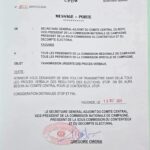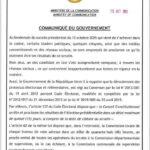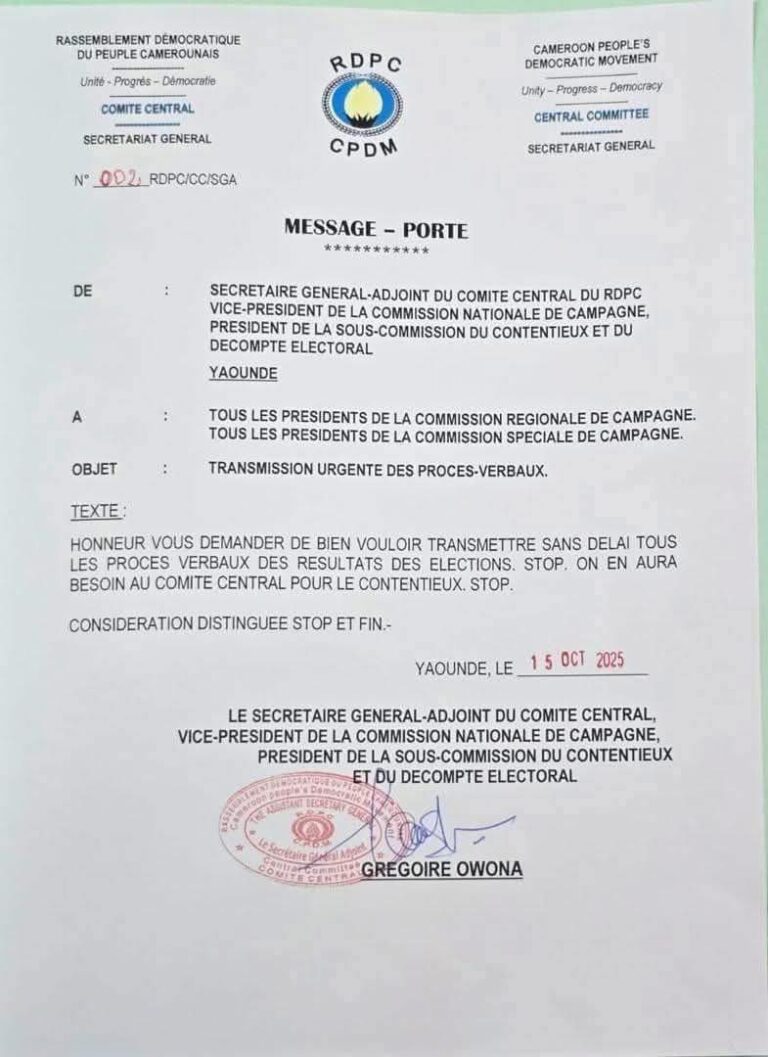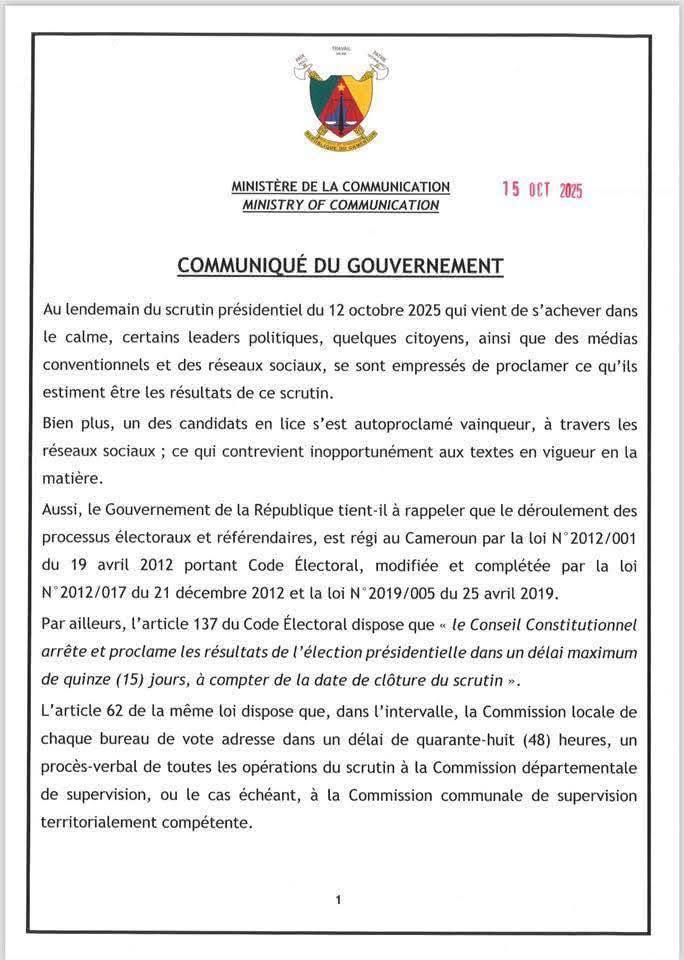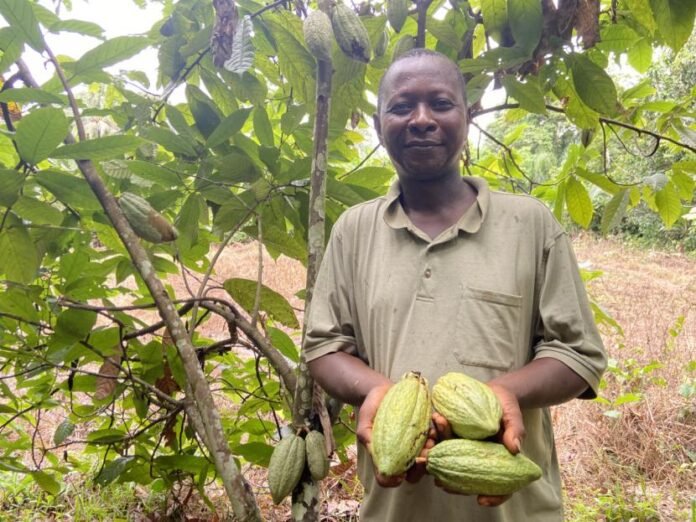
By Ibrahim Sesay
Despite record-breaking global cocoa prices, millions of smallholder farmers across West Africa remain locked in poverty, according to the newly released Cocoa Barometer 2025, published by the VOICE Network and a consortium of Civil Society Organizations. The report presents a sobering analysis of a sector at once thriving and failing; where high prices and policy attention have not translated into real improvements for the farmers who produce most of the world’s cocoa.
Côte d’Ivoire and Ghana, which together account for over 60 percent of global cocoa production, remain the backbone of the world’s chocolate industry. Nigeria has also emerged as a rising player, with projections of 350,000 tonnes for the 2024/25 season. Yet, despite this dominance, most cocoa farmers have not benefited from the ongoing price surge. The report highlights that forward-selling mechanisms, which lock in prices in advance, have delayed gains for farmers, while productivity continues to fall due to aging plantations, plant diseases, and climate-related shocks.
The Cocoa Barometer 2025 identifies farmer poverty as the central cause of nearly all major challenges in the industry; from deforestation and child labor to gender inequality. The report warns that while European human rights and environmental legislation was designed to address these structural issues, recent political resistance within the EU could roll back the hard-won progress made toward ethical and sustainable cocoa sourcing.
“Paying farmers a living income is not only a moral obligation but also a legal requirement,” the report emphasizes. “Without fair pricing, every other sustainability effort becomes cosmetic.”
Paradoxically, the high cocoa prices of recent years have sparked a new production boom that is driving deforestation into previously untouched regions of West Africa. Analysts warn that this expansion, if unchecked, will lead to oversupply and another market crash similar to that of 2016, when cocoa prices collapsed, leaving farmers devastated.
The Barometer notes that an estimated 1.5 million children continue to work in hazardous conditions on cocoa farms in Ghana and Côte d’Ivoire. Meanwhile, women, who perform much of the daily labor, remain excluded from decision-making roles and receive minimal returns from cocoa profits. The report also sheds light on the plight of tenant farmers and hired laborers, who are often overlooked in discussions about farmer welfare but remain the most vulnerable group within the cocoa economy.
According to the report, weak governance and lack of transparency continue to undermine sustainability efforts. Supply management mechanisms remain ineffective, leaving farmers exposed to volatile global markets. The absence of transparency in farmgate pricing and cocoa sales has also weakened accountability, allowing exploitation to persist along the supply chain.
Despite these gaps, the Cocoa Barometer insists that systemic change is possible if Governments, corporations and Civil Society Organizations collaborate more effectively. The report outlines key reforms, including fair farmer compensation, protection of forests, gender equality in leadership and full transparency across the cocoa value chain.
The Chocolate Scorecard 2025, which ranks companies based on sustainability performance, reveals a worrying lack of accountability within the private sector. According to the Barometer:
- 47% of cocoa and chocolate companies cannot confirm whether any of their farmers earn a living income.
- Nearly half of all cocoa sourced globally lacks verifiable proof of being deforestation-free.
- Although 87% of companies have committed to ending deforestation, only 56% of their cocoa supply meets that standard.
These findings highlight the continued disconnect between corporate pledges and on-the-ground realities for cocoa farmers.
Across West Africa, aging plantations, erratic rainfall and rising input costs are eroding farmers’ margins. Ghana’s cocoa output dropped by 25.3% between 2022–23 and 2023–24, while Nigeria’s fell by 12.9%. In contrast, Cameroon and Ecuador recorded production increases of 11.1% and 18.5%, respectively. Experts warn that without renewed investment in farm renovation and soil regeneration, West Africa risks losing its dominance in global cocoa supply.
The Barometer further identifies climate change, mining expansion and deforestation as competing pressures that continue to reduce available farmland and threaten rural livelihoods.
The 2025 edition of the Barometer calls for urgent action and shared responsibility across the cocoa value chain. Its core recommendations include:
- Ensuring living incomes for all cocoa farmers.
- Imposing a global moratorium on deforestation linked to cocoa cultivation.
- Recognizing both women and men farmers as equal decision-makers.
- Implementing transparency and accountability throughout the supply chain.
The report stresses that the only way forward is through genuine collaboration between Governments, companies and Civil Society Organizations.
The Cocoa Barometer is the leading independent sustainability review of the global cocoa industry. Published every three years by the VOICE Network and its partners, it combines aggregated and country-level data to assess progress toward fairer and more sustainable cocoa systems. The 2025 edition is accompanied by two consultation papers; Good Purchasing Practices and Good Governance for Living Income; both designed to advance dialogue on fair pay and responsible procurement.
Available in English, French and Spanish, the Barometer serves as both a watchdog and a reform tool, empowering stakeholders across the value chain to build a more just, transparent and sustainable cocoa sector for generations to come.



